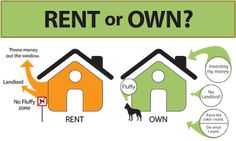
It’s an age-old debate: to rent or to buy? It’s a question that everyone faces at some point in their life.
Whilst the recent struggles of particularly younger people getting on the property ladder have been well documented, government schemes such as ‘Help to Buy’ have seen the number of first-time buyers hit a 12-year high.
So, all hope is not lost, but this doesn’t mean buying right now is the right decision for you. Approaching the property market correctly has become a major factor for people looking to efficiently manage their finances, so here we look at the financial differences between buying and renting.
The financial pros of buying
You own the property
This is a big one. Not only do you have greater security but buying a property means you are investing in a major asset which should build value as time goes on, meaning you can sell for profit down the line or use it to make further moves in the property market.
You’re on the property ladder
The toughest step is getting on the ladder in the first place. Once you’re there, you can build towards bigger and brighter things. Moving up the ladder means you can look at potential buy to let options and open a new revenue stream.
Eliminate the monthly cost
While the mortgage payments may start off large and take years to pay off, you will eventually complete your payments, removing a huge chunk of your monthly spend that can be redistributed elsewhere.
The financial cons of buying
The big down payment
The biggest stumbling block for new buyers is finding the funds for a deposit. Lenders will typically expect a down payment of around 20%, which will cause huge strain on savings and rule some out entirely.
The Maintenance costs are yours
If anything goes wrong in the home, you are on the hook for it. It could be a damaging leak or a boiler replacement; repairs and refurbishments are time consuming and come at significant expense.
The costs of buying and selling
Not only is it a significant hassle, but property buying and selling processes come with notable costs. For example, admin costs on buying a home are typically two to five percent of the property value.
The financial pros of renting
Financial mobility
The savings you might have devoted to a down payment can be used elsewhere. Renting is becoming an economically sound choice for those looking to invest and grow their savings instead of pumping them into a house deposit.
No maintenance costs
On the contrary to owning the property, any maintenance issues are dealt with by the landlord, meaning you should have a quick, hassle and cost-free solution to any issues around the house, and that could save you a significant amount.
Initially cheaper
At least in the beginning, you’re likely to be paying a smaller, fixed amount each month, making renting much more accessible. There is some argument to suggest it might even be cheaper over time.
The financial cons of renting
‘Money down the drain’
It’s a cliché but one that reigns true; you are putting money into nothing but maintaining the status quo of a roof over your head. No investment opportunities, no future assets, renting is a cost and a cost alone.
Rent spikes
It’s likely you’ll face rent increases, potentially spikes, from year-to-year. This means, over time, renting will likely become more expensive than owning, and the monthly payment will never go away.
Less security
Although unlikely, there is a chance your landlord may move to sell the property, leaving you in a difficult position of needing find a new place to live quickly and causing financial strain.
In the end, the debate comes down to two things: a person’s financial circumstance and how they want their lifestyle to be — flexible or tied in.
Whilst buying is no doubt the ideal investment for long term security and financial growth, there are many out there who see renting as an opportunity to build resources in a different, but effective manner.



